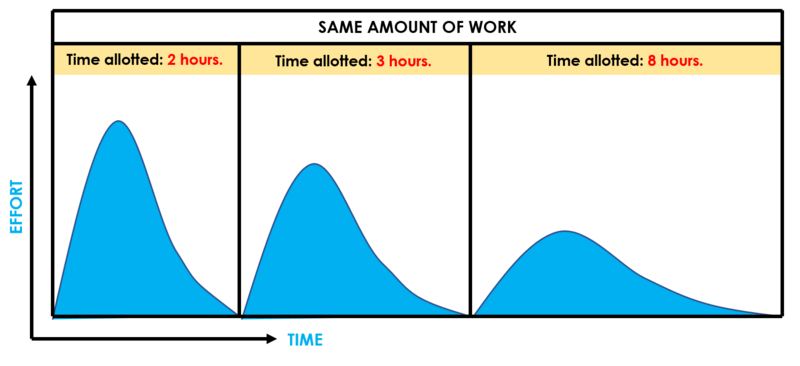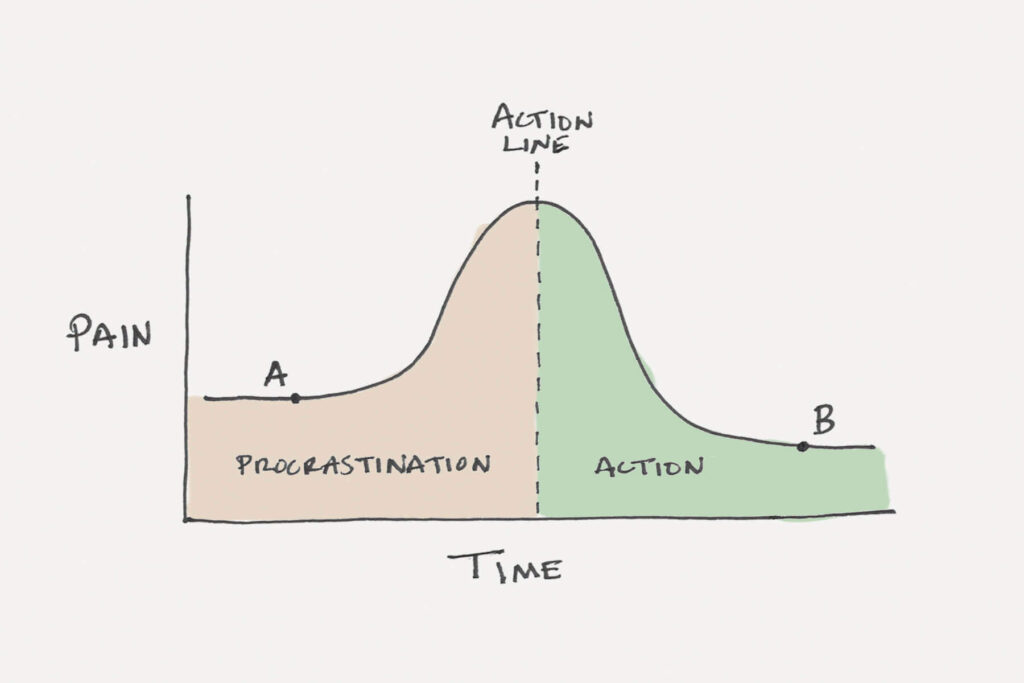Embarking on a journey as a Ph.D. student is both exhilarating and challenging. While the pursuit of a doctoral degree brings the opportunity for intellectual growth, it also demands the highest level of dedication and productivity. Therefore, being a Ph.D. student is tough as it comes with a lot of challenges to undertake within a constrained period. A Ph.D. student has to spend several long hours on research, reading, writing, mentoring along with other personal responsibilities which might lead to an unhealthy work life balance. This unhealthy work life balance often burns out a Ph.D. student, and thus reduces productivity in the long run. In this article, we will explore practical tips and strategies that can help one to be a productive PhD student.
Work around a fixed daily routine:
A lot of grad students often want to work around their own clock. For example, other than attending their daily classes or weekly meetings, a lot of grad students do not often have a regular daily routine. I know everyone is different and has different preferred time slots for work. Some might be early birds, and some are night owls. That timeline might be OK for your personal life, but not in the professional setting.
Even if you are just a Ph.D. student and get paid for 20 hours working as a research associate/assistant, you should follow a timeline. You might decide to come to the lab every day by 9/9:30 AM in the morning and start your day. Some might argue that this is not a professional setting, but it is always good to maintain professionalism in your daily work life. Your lab mates might need your help, your lab might have visitors, or your advisor might want to see you early in the morning to discuss something. So, you should always make yourself available in a common time slot. I am not saying being an early bird is must, but if you can build that habit this will help you to be a highly productive PhD student.
Plan out your week:
Not every day goes as per your plan, so plan for a week to adjust accordingly. As a Ph.D. student, we always need to make continuous progress to our research goals so that we can finish our project during the designated timeline. Therefore, for every week you should fix a number of experiments that you will do. Do not overstress yourself to finish all the experiments within a day or two. Find out the most effective time of your day when you remain highly active and focused. Plan to do your experiments or do intellectually challenging tasks in that time slot. For the rest of the hours do reading, relax and analyze your data.
See if you can generate at least a graph or finish an analysis per week. If that is not possible then at least make a bi-weekly basis target. Working at this constant pace, will help you to generate at least 26 figures for your thesis per year. Just imagine you are following this method, then by the end of your program you will find out that you have been a highly productive PhD student.

Plan for your research:
New Ph.D. students tend to rush to do experiments before giving proper thought. This is a rookie mistake that most of the students make during their first or second year of studies. There is a famous quote from Abraham Lincoln: “Give me six hours to chop down a tree, and I will spend the first four sharpening the axe.” Before you decide to do an experiment, first spend ample amount of time in designing the experiments properly. Make sure you establish a protocol to do the experiment and collect the required data. If you are using any instruments, then make sure that they are properly calibrated. Write down all the procedures properly so that anyone can repeat your experiments, if needed.
If you are doing some theoretical work or any coding, then writing the workflow using a block diagram will help you to identify all the factors that you need to consider. Try to write a clean and readable code with proper instructions and notes so that anyone can track back your work.
Organize everything:
When you download a paper, make sure you save it by year and title so that you can find them at ease when you need it again. If you find some information relevant while you are reading a paper, make sure you highlight it and write it down as bullet points in any notetaking apps or on a paper. Ph.D. students often get access to OneNote, and it is a wonderful productivity tool. Learn to use it effectively for all kinds of notetakings and documenting your daily work.
When you are presenting any result, or any image make sure you properly format them so that you do not have to repeat the same task during the submission of a paper. Ph.D. students often lose their valuable just to go back to their old work and retouching something. If you are writing a code, make sure your code is clean and readable. For the data analysis, if you can somehow automate it, then do it even if it takes a month to learn something new and implement it. Trust me, this will save a lot of time in future.

Track your progress:
To be a successful grad student you should take charge of policing your progress, not your advisor. Your advisor will help you, push you but at the end of the day you should be the driver of your own journey. For example, you can set a goal for yourself such as every year publishing at least one journal as a first author and work with your other lab mates to co-author another paper. Then, work towards that goal. But be realistic while fixing your goal.
Every summer, you can aim to learn a new skill set which might help you to land a job once you graduate. In grad school you should always compete with yourself, not with others. Every year you should try to be a better student than the previous year. Tracking your progress year by year and taking measures accordingly will help you to be a productive PhD student.
Done is better than Perfect:
While you do any experiment or write a code or build a mathematical model, you will not get every specific detail right. It is important that you finish a task first, then think of improving it. Perfecting things is a good attitude, but it comes with a cost of procrastination. It is often difficult to predict what might go wrong beforehand. Once you start working on something, then you will find out that not everything goes according to the plan. Then you need to improvise it.

Maintain a work life balance:
In academia you will find a lot of professors who are highly demanding and thus it requires doing 40-50 hours work per week. In general, any grad student has to work for 30-40 hrs in week to accomplish weekly objectives. No matter how long you work in total, do not push your work to your weekends unless you really have to.
Apart from your academic work, you should find a hobby or do any kind of activities that make you happy. Also, fix a schedule daily to go to gym or participate in casual sports daily. Be physically active to be in good health. Make sure you have your meal on time and have at least six to eight hours of sleep. Travel somewhere when you get a chance to. Make a small circle who will not only boost your morale but will also help you to be a better person.
Seek support:
Ph.D. journey is challenging, both academically and emotionally. Not everyone around you needs to understand your academic and emotional struggle. So, the first thing you should do is stop explaining everything to everyone. Seek support from peers, mentors, and friends who understand the demands of academia. Sometimes people end up in not so supportive research groups. Some PIs usually like to maintain a competitive environment among the lab members. Not everyone flourishes in competitive environments. Some just need a highly collaborative culture to grow. If you do not fit in a competitive environment, then find a group where the members are well accommodating and work in a collaborative environment.
Becoming a highly productive PhD student demands continuous effort, effective time management, and a balanced approach to work and life. You also need to learn to set your goals clearly and take baby steps to achieve that goal. There is no alternative to hard work, but to be productive you need to be efficient at time management and go through a continuous improvement process. In Ph.D., you do not compete with others, you compete with yourself. Everyday or week you should try to better than that of previous day or week. Embrace these strategies, adapt them to your unique circumstances, and embark on a productive and fulfilling PhD journey.


Hey, cool post You can check if there’s a problem with your website with Internet Explorer. Because of this issue, many readers will overlook your excellent writing because IE is still the most popular browser.
sure. thanks for the feedback. will do it.